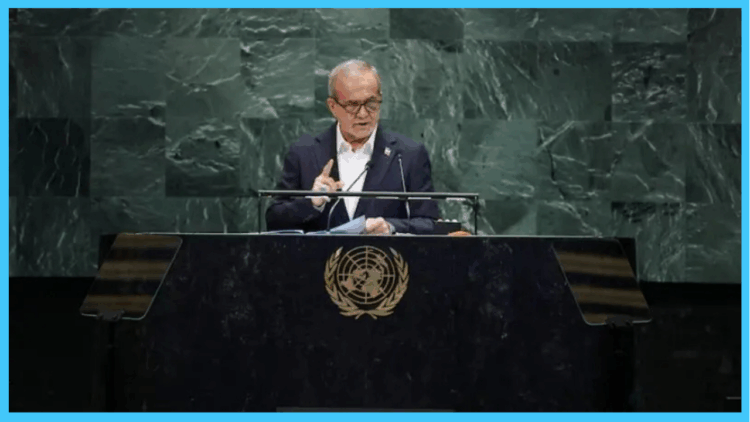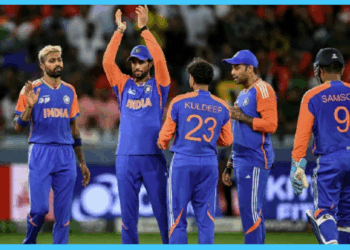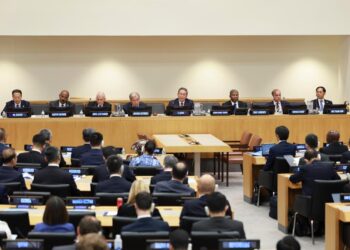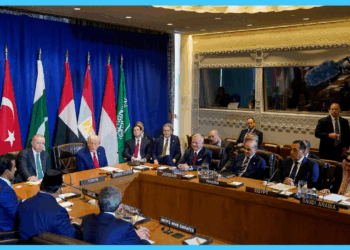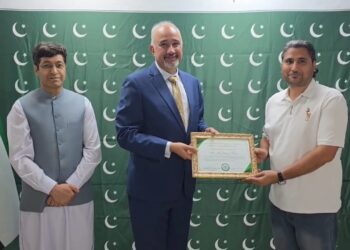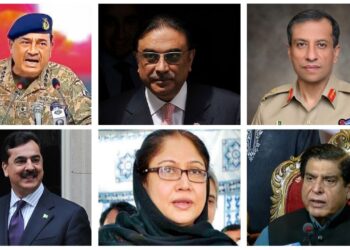NEW YORK; Iranian President Masoud Pezeshkian on Wednesday hailed the recently signed mutual defence pact between Pakistan and Saudi Arabia, describing it as the foundation of a “comprehensive regional security system.”
He made the remarks while addressing the General Debate of the 80th Session of the United Nations General Assembly (UNGA).
The agreement, signed last week at Riyadh’s Al-Yamamah Palace by Prime Minister Shehbaz Sharif and Saudi Crown Prince Mohammad bin Salman, stipulates that any act of aggression against one party will be treated as an attack on both.
The landmark accord came at a time of heightened instability in the Middle East, following the deadly India-Pakistan conflict in May and the 12-day Iran-Israel war in June.
President Pezeshkian welcomed the pact, stating: “Iran views the defensive agreement between the Kingdom of Saudi Arabia and the Islamic Republic of Pakistan as the beginning of a comprehensive regional security structure. We encourage the cooperation of all Muslim states in West Asia in political, security, and defence matters.”
Deputy Prime Minister and Foreign Minister Ishaq Dar earlier hinted that other countries were showing interest in striking similar agreements with Pakistan, though he stressed it was too soon to disclose details.
The Iran-Saudi relationship has long been fraught, with the two nations often supporting opposing sides in conflicts in Syria and Yemen. Diplomatic ties were severed in 2016 but restored in 2023 under a Chinese-brokered agreement, paving the way for improved relations. Since then, leaders of both countries have held high-level meetings, signaling a thaw in ties.
Saudi Arabia has in recent months condemned Israeli strikes on Iran and criticized US military actions targeting Iranian nuclear facilities, describing them as violations of international law.
During his UNGA address, President Pezeshkian also reiterated Tehran’s stance on nuclear weapons, declaring: “I state once again before this assembly that Iran has never sought, and will never seek, to build a nuclear bomb. We do not seek nuclear weapons.”
The remarks came just days before the September 27 deadline for the possible reimposition of UN sanctions, after Britain, France, and Germany (the E3) triggered a process accusing Tehran of violating the 2015 nuclear agreement.
The European powers have offered to delay sanctions for up to six months if Iran restores access for UN inspectors and addresses concerns about enriched uranium stockpiles.
Pezeshkian criticized the European move as “illegal” and orchestrated at the behest of Washington. He accused the E3 of undermining good-faith negotiations and portraying Iran’s lawful remedial steps as violations.
If no deal is reached by September 27, sweeping UN sanctions will automatically “snap back,” including arms embargoes, uranium enrichment bans, and restrictions on ballistic missile activities, alongside global asset freezes and travel bans.
Iran’s economy, already strained by US sanctions reimposed in 2018 after former President Donald Trump withdrew from the nuclear deal, could face further hardship under renewed international restrictions.
Despite tensions, both Iran and the European powers have left room for negotiation. On September 9, Tehran and the International Atomic Energy Agency (IAEA) reached a deal to resume inspections at nuclear sites, with inspectors preparing to travel should talks yield progress this week.
As the deadline looms, the world watches closely to see whether diplomacy can prevent a fresh cycle of sanctions and conflict in the region.








